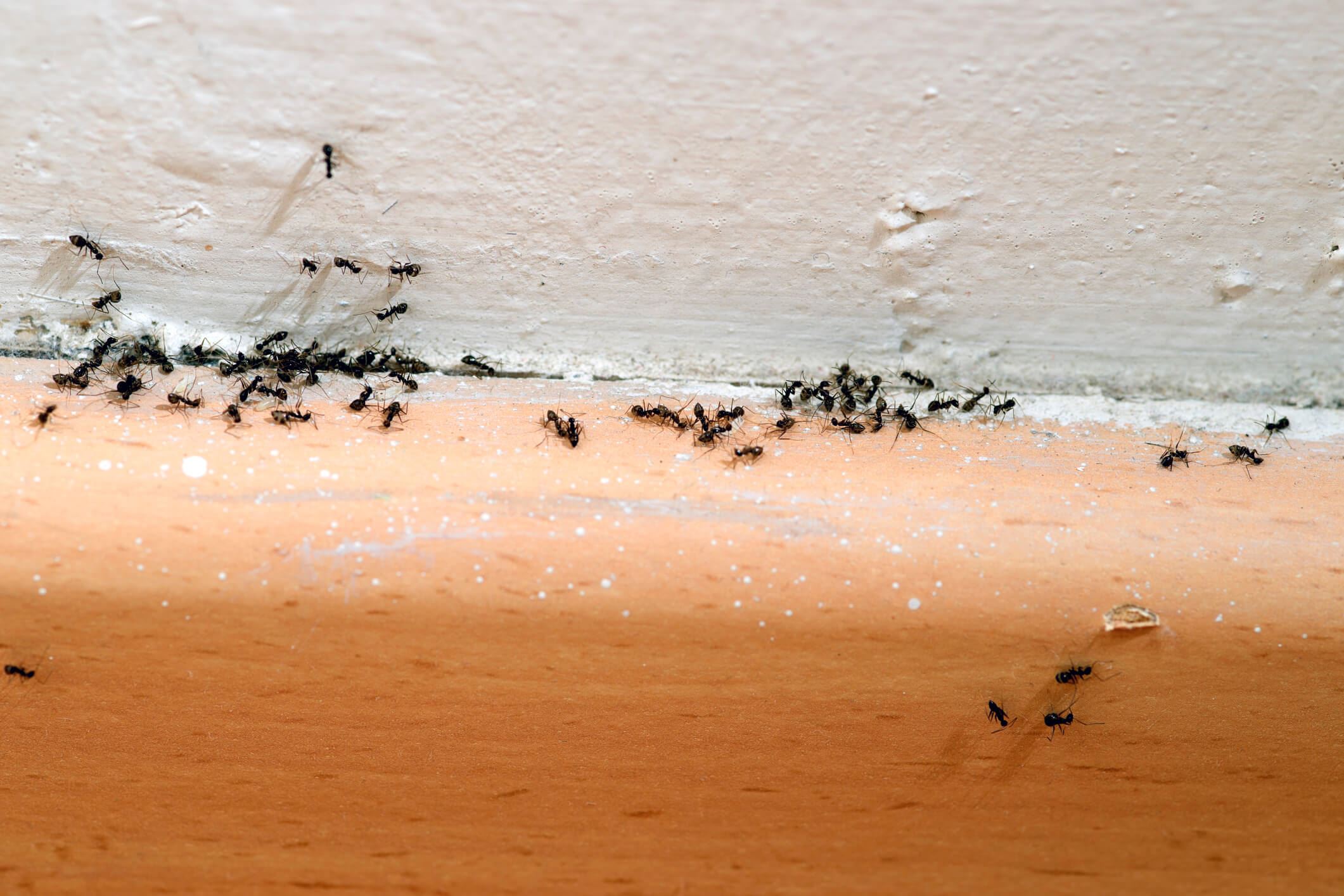
Ants can be a common nuisance in households, invading kitchens, pantries, and other areas in search of food and water. Dealing with an ant infestation can be frustrating, but before reaching for harsh chemical pesticides, it’s worth considering natural ways to get rid of ants. Not only are these methods safer for the environment and your health, but they can also be effective in controlling ant populations. In this article, we will explore a variety of natural remedies and prevention techniques that can help you eliminate ants from your home.
Introduction
Ants are social insects that live in colonies and have a strong sense of organization. While they play important roles in nature, their presence inside your home can be undesirable. Ants are attracted to food and water sources, and once they establish a trail, it becomes challenging to deter them. This article aims to provide you with natural and environmentally friendly solutions to combat ant infestations without resorting to harmful chemicals.
Understanding Ant Behavior
Before diving into the remedies, it’s essential to understand the behavior of ants. Different types of ants may infest your home, such as carpenter ants, sugar ants, or pavement ants. These ants are primarily attracted to food and water sources, and they leave scent trails for other ants to follow.
Ant infestations can vary depending on the season. During warmer months, ants are more active, looking for food to sustain their colonies. Understanding these patterns can help you address the issue effectively and implement preventive measures to avoid future infestations.
Prevention Methods
Prevention is crucial in keeping ants at bay. By making your home less appealing to ants, you can significantly reduce the likelihood of an infestation. Here are some prevention methods to consider:
- Keeping the house clean and free of food crumbs: Regularly sweep and mop your floors, wipe down countertops, and clean up any spills promptly. Ants are attracted to even the tiniest food particles.
- Sealing entry points and cracks: Inspect your home for cracks and openings that ants can use as entry points. Seal them with caulk or other appropriate materials.
- Storing food properly: Keep food in airtight containers to prevent ants from accessing them. This includes pet food, which can be a common target for ants.
- Eliminating standing water sources: Fix any leaks or drips that can provide ants with a water source. Ensure that your sinks, pipes, and faucets are in good working condition.
Natural Remedies
When dealing with ants, several natural remedies can be effective in repelling or eliminating them. These remedies are safe to use around children and pets. Here are some natural methods you can try:
1. Peppermint oil as a deterrent
Peppermint oil has a strong scent that repels ants. Mix a few drops of peppermint oil with water and spray the solution around entry points, ant trails, and areas prone to infestation. The strong smell will discourage ants from entering your home.
2. Using vinegar as a repellent
Vinegar is a versatile natural cleaning agent that can also repel ants. Mix equal parts of vinegar and water in a spray bottle and apply it to areas where ants are present. Vinegar disrupts the scent trails, making it difficult for ants to navigate.
3. Diatomaceous earth for ant control
Diatomaceous earth is a fine powder made from fossilized remains of algae. It is harmless to humans and pets but can be detrimental to ants. Sprinkle diatomaceous earth in areas where ants are active, such as along their trails or near entry points. The powder dehydrates ants, leading to their demise.
4. Cinnamon and cloves as natural ant barriers
Cinnamon and cloves are known for their strong scents, which ants find unpleasant. Place cinnamon sticks or cloves near ant entry points, windowsills, or other areas where ants frequent. These natural barriers can deter ants from entering your home.
Home Remedies
In addition to the natural repellents mentioned above, there are several effective home remedies for ant control. These remedies use common household items and are easy to prepare. Here are a few examples:
1. Borax and sugar solution for ant bait
Create a mixture of equal parts borax and sugar with a small amount of water to form a paste. Place this bait in areas where ants are active. The sugar attracts ants, while the borax acts as a slow-acting poison that they carry back to their colonies, effectively eliminating them.
2. Lemon juice and water spray
Ants dislike the acidic nature of lemon juice. Mix lemon juice with water and spray it along ant trails, entry points, or infested areas. Repeat this process regularly to deter ants from returning.
3. Essential oil-based ant repellents
Certain essential oils, such as tea tree oil, citrus oil, or lavender oil, can repel ants due to their strong fragrances. Dilute a few drops of the essential oil with water and spray it in areas where ants are present.
4. Homemade ant traps using household items
Create ant traps using everyday items like a shallow dish, water, and a few drops of dish soap. Place the dish near ant trails or infested areas. The soapy water will trap and drown the ants.
Landscaping and Outdoor Measures
Ants can also be a problem in outdoor areas, such as gardens or patios. Taking certain measures can help prevent ants from entering your home. Here are some landscaping and outdoor solutions:
- Keeping outdoor areas clean and free of debris: Remove fallen leaves, grass clippings, and other organic materials that can attract ants. Regularly clean outdoor furniture and ensure there are no food or drink spills.
- Creating barriers using natural substances: Sprinkle substances like coffee grounds, citrus peels, or crushed mint leaves around the perimeter of your house. These natural barriers can deter ants from entering your home.
- Planting ant-repellent herbs and flowers: Certain plants, such as mint, basil, lavender, or marigold, have natural ant-repellent properties. Plant these herbs and flowers near windows, doors, or outdoor sitting areas to discourage ants.
Professional Help and Considerations
In severe cases or if your efforts don’t yield satisfactory results, it may be necessary to seek professional help. Pest control experts can assess the severity of the infestation and provide targeted solutions. However, it’s important to consider the environmental impact of the treatments used by professionals. Discuss eco-friendly options with the pest control company before proceeding.
Conclusion
Dealing with ants can be a frustrating experience, but it’s possible to eliminate them using natural methods. By implementing preventive measures, using natural remedies and home remedies, and considering outdoor solutions, you can effectively get rid of ants without resorting to harmful chemicals. Remember to be persistent and patient, as it may take time to see significant results. By embracing natural solutions, you contribute to a healthier environment for both you and the planet.
FAQs
1. Can ants cause structural damage to my house?
Ants generally do not cause significant structural damage. However, certain ant species, such as carpenter ants, can excavate wood and weaken structures. If you suspect a carpenter ant infestation, it’s advisable to seek professional assistance.
2. What should I do if I have a severe ant infestation?
For severe infestations, it’s recommended to contact a professional pest control company. They have the expertise and resources to effectively address the issue and provide long-term solutions.
3. Are natural remedies safe for pets and children?
Yes, natural remedies are generally safe for pets and children when used as directed. However, it’s important to keep essential oils and other substances out of reach to prevent accidental ingestion.
4. How long do natural remedies take to work?
The effectiveness of natural remedies may vary depending on the severity of the infestation and the specific method used. It may take several days or weeks to see significant results. Consistency and regular application are key.
5. How often should I repeat the treatments?
Repeat treatments as necessary until the ant infestation is completely eliminated. For preventive measures, such as applying natural barriers or deterrents, regular maintenance and reapplication may be required.




